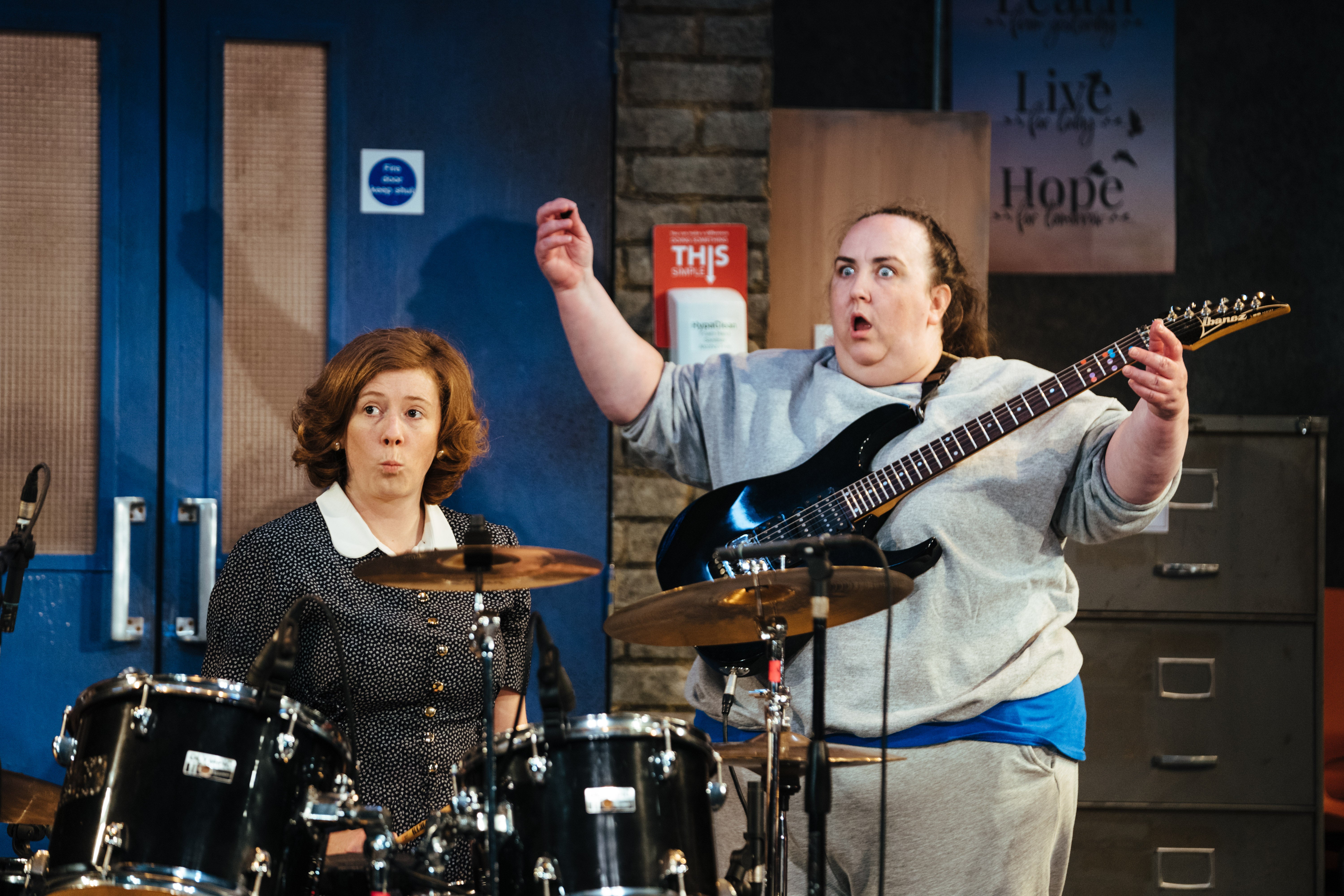Typical Girls review, Crucible Theatre: Incarcerated women find their voice through music
A mixed bag of performances unify around rackety but fun renditions of The Slits’ suitably rough-around-the-edges songs

Morgan Lloyd Malcolm – who had a barnstorming hit with her play Emilia, about an Elizabethan poet – returns to the Sheffield Crucible with another show about women finding and raising their voices. This time, it’s a contemporary story of female prisoners in a unit that helps them prepare for release with creative workshops. Typical Girls is a co-production between Sheffield theatres and Clean Break, a theatre company that works with women with lived experience of the criminal justice system, and the cast features both professional actors and Clean Break members.
The well-meaning Marie (Lucy Ellinson) goes into a prison to lead music workshops with a group of five inmates with personality disorders, who have committed violent crimes. For a show about incarcerated women finding their voices through music, what better music to choose than that of female punk pioneers The Slits? Songs about the limiting expectations placed on women, messed-up relationships, and even shoplifting fit snugly into Lloyd Malcolm’s stories for each character.
A mixed bag of performances unify around rackety but fun renditions of The Slits’ suitably rough-around-the-edges songs. Yet outside of these, the raw spirit of punk can feel lacking in Roisin McBrinn’s oddly diffuse, defused production. This should be a pressure cooker, but some of the most dramatic moments – the women threatening each other; the fear that one of their number has killed themselves; a horribly misguided intervention from Marie – fail to amp up the tension.
Each character privately reveals to the audience their own backstory, in beautifully crafted speeches (also projected onto the prison walls in cleverly integrated captions), offering sharp insights into the range of circumstances that led them to where they are today, or their experience of being separated from their children, or even their fear of being released. These provide the strongest writing in the show, but within the main action, several characters feel underexplored. And for a play that’s interested in the transformative power of music and creativity, not many end up in a terribly different place from where they started.

The exception is Mouth, a repeat offender on the verge of being granted parole, brilliantly played by Alison Fitzjohn with a funny yet bruising mix of blustering bravado and vulnerability. When Marie goes off on a big speech at the end – making a grand gesture of what she believes to be f***-the-system punkish rebellion, which is really more about serving her own needs than those of the women who risk being denied the few freedoms they have – it is Mouth who has the most to lose. And it is, appropriately, Mouth who delivers the news that there will be no neat happy ending here.
Emilia was celebrated for its rousing, empowering, easily graspable speeches – so it feels both interesting, and absolutely correct, that here, Lloyd Malcolm is complicating and refusing our desire for a big redemptive moment. Idealism butts up against a brutal, unromantic pragmatism in the final scenes. The play may cogently argue that rehabilitation shouldn’t be controversial, and that music, art and drama can help people – but it recognises they’re no magic quick-fix either. There are no typical girls in these situations; there are no easy answers.



Join our commenting forum
Join thought-provoking conversations, follow other Independent readers and see their replies
Comments